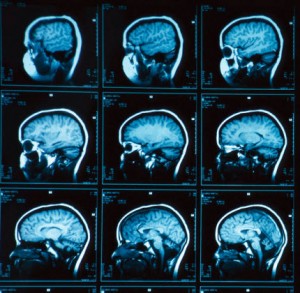 Could your memory loss be caused by an actual medical condition versus a simple case of forgetfulness? We often attribute memory loss with aging, but there are a number of memory disorders that can be at play. Know the difference and make sure that if you are experiencing any type of memory loss that you get checked out by your doctor. This article examines 5 diseases that affect memory loss.
Could your memory loss be caused by an actual medical condition versus a simple case of forgetfulness? We often attribute memory loss with aging, but there are a number of memory disorders that can be at play. Know the difference and make sure that if you are experiencing any type of memory loss that you get checked out by your doctor. This article examines 5 diseases that affect memory loss.
Diseases That Affect Memory Loss
1. Alzheimer’s Disease
Alzheimer’s disease is a neurodegenerative condition that adversely affects cognitive functioning. With about 44.4 million people worldwide displaying some type of dementia disease, Alzheimer’s is the most common disease of its type. While the symptoms of Alzheimer’s disease can vary, some of the more common ones include a deterioration of reasoning and thinking skills as well as difficulty remembering. via DDT increases risk of Alzheimer’s disease – Natural News
In Alzheimer’s disease, amyloid beta proteins accumulate in the brains of Alzheimer’s patients and produce inflammation. This inflammation leads to certain gene modifications that interrupt the functioning of synapses in the brain, leading to memory loss. via Rat Study Finds Critical Component in Alzheimer’s Memory Loss …
2. Vascular Dementia
Dementia, in and of itself is not a disease, but rather a term used to describe a host of diseases that affect memory loss. However, for our purposes here we will separate Alzheimer’s and Dementia with the term dementia referring to vascular dementia.
Dementia is characterized by a progressive deterioration of thinking abilities and memory. There are certain features that represent normal age progressing but forgetting how to do certain tasks, unable to learn new things and not recalling information that is needed on daily basis is a matter of concern. via Combating Dangerous Memory Disorders | Fitness Republic
In addition to a loss of memory and impaired cognition there can also be a loss of physical coordination. The symptoms are directly indicative of the part of the brain that is affected by a loss of nerve cells or more commonly referred to as atrophy of the brain.
“Vascular dementia is the second most common form of dementia after Alzheimer’s disease. It is caused by problems in the supply of blood to the brain.” (Alzheimer’s Society, 2014).
Symptoms:
- problems with speed of thinking, concentration and communication
- depression and anxiety accompanying the dementia
- symptoms of stroke, such as physical weakness or paralysis
- memory problems (although this may not be the first symptom)
- seizures
- periods of severe (acute) confusion.
via What Is Vascular Dementia?
3. Parkinson’s Disease
A lot of research is still needed to understand the relationship between Parkinson’s disease and memory. Recently a team of research in Finland found that “free recall memory deficits common even in early stages of Parkinson’s disease are related to structural changes in the brain, specifically parietal cortical gray matter volume” (IOS Press, 2014).
“This study is one of the first to link a discrete area of the brain to a cognitive deficit in people at an early stage of PD, comments lead investigator Ulla Ellfolk, Department of Psychology and Logopedics of Abo Akademi University, and the Division of Clinical Neurosciences, Turku University Hospital, Turku, Finland. “Clinical studies have shown that free recall is more strongly affected than language, performance on simple attention tasks, and visuospatial functioning in newly diagnosed PD patients.” via Parietal gray matter volume changes may be associated with early …
4. Depression
Every single person at some point and time may feel depressed. Most often this is brought on by challenges or hardships in ones life rather than an association to diseases that affect memory loss. However, they are usually able to get through this time quite easily whereas someone who has clinical depression is not. They have changes that occur in the brain, behaviors that directly impact their daily functioning that occur for a prolonged period of time. Depression is extremely common and affects millions of people around the world.
Depressive illnesses are disorders of the brain. Brain-imaging technologies, such as magnetic resonance imaging (MRI), have shown that the brains of people who have depression look different than those of people without depression. The parts of the brain involved in mood, thinking, sleep, appetite, and behavior appear different. But these images do not reveal why the depression has occurred. They also cannot be used to diagnose depression.via What Is Depression?
Depression is frequently associated with memory problems, most likely because depression arises from abnormal functioning of brain areas that are also very important for memory. It’s not uncommon for mild memory problems to persist for a while after people have otherwise responded to treatment and are doing better. As you intimate, medications also can adversely affect memory, especially in older people, but this is less likely in your husband’s case because his memory has deteriorated without medication changes. via Can Depression Cause Memory Loss?
5. Celiac Disease
Many people do not understand the complexity and prevalence of celiac disease. Often confused with a wheat tolerance or allergy, which could not be further from the truth. Celiac disease is an autoimmune disease whereby the body confuses the gluten protein as a threat and begins to engage in combat.
Celiac disease, or more specifically gluten, can cause depression, anxiety, and even brain disorders. As well, as making the individual more susceptible to a host of other medical conditions. Both individuals with celiac disease and gluten sensitivity may be prone to gluten related memory loss.
The intestinal wall become porous allowing “undigested food, toxins and bacteria into the bloodstream where they trigger inflammation throughout the body and brain…also, certain harmful bacteria that travel through a leaky gut into the bloodstream release toxic molecules (lipopolysaccharides) that are linked to depression and various psychiatric disorders” (Herbold, 2014).
Image Courtesy of Ken Glaser – National Geographic. Retrieved from http://healthfavo.com/mri-brain-scan-results.html
References
Alzheimer’s Society. (2014). What is Vascular Dementia? http://www.alzheimers.org.uk/site/scripts/documents_info.php?documentID=161
Herbold, R. (2014). Gluten Can Cause Depression, Anxiety, Brain Fog And Other Brain Disorder. Capital District Vitality Center. http://capitaldistrictvitalitycenter.com/blog/2014/02/gluten-can-cause-depression-anxiety-brain-fog-and-other-brain-disorders/
IOS Press. (2014). Parietal Gray Matter Volume Changes May Be Associated With Early Parkinson’s Disease Memory Devicits. Psypost. http://www.psypost.org/2014/01/parietal-gray-matter-volume-changes-may-be-associated-with-early-parkinsons-disease-memory-deficits-22196

Subscribe To Our Newsletter
Join our mailing list to receive the latest news and updates from our team.





